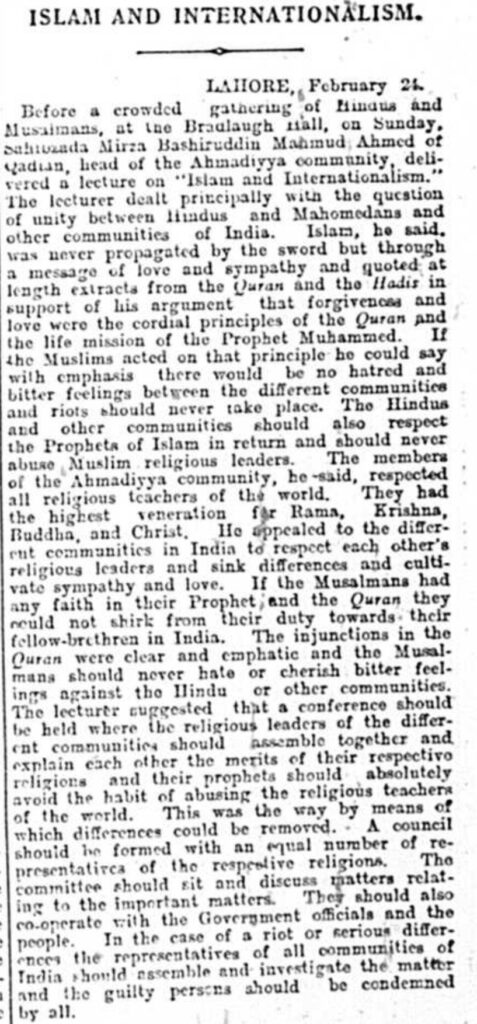Ata-ul-Haye Nasir, Ahmadiyya Archive & Research Centre
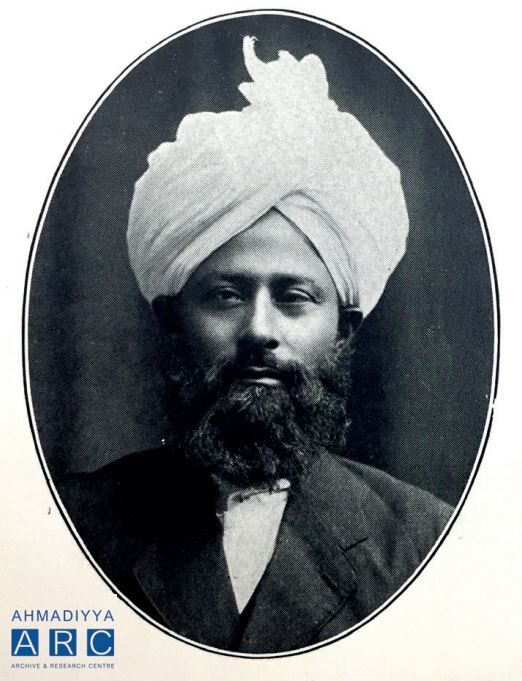
On 23 February 1919, Hazrat Musleh-e-Maudra, Mirza Bashir-ud-Din Mahmud Ahmad, delivered a lecture at the Bradlaugh Hall in Lahore, which was attended by people belonging to various religions and walks of life. The duration of the lecture was three hours.
Prior to the lecture, The Civil and Military Gazette published an announcement of this event as well:
“Sahibzada Mirza Bashir-ud-Din Mahmood Ahmad of Qadian, head of the Ahmadiyya community, will deliver a lecture in Urdu on ‘Islam and International Relations’ in the Bradlaugh Hall at 3pm on Sunday, February 23rd.” (The Civil and Military Gazette, 22 February 1919, p. 10)
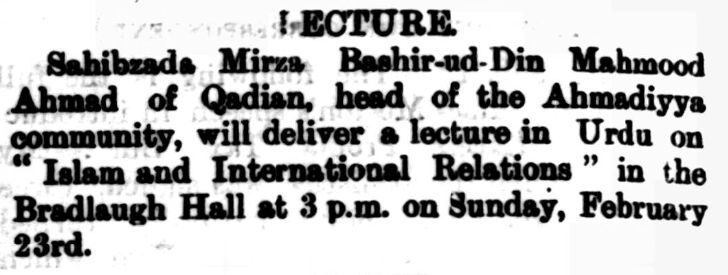
Lecture at the Bradlaugh Hall
At the beginning of his lecture, Hazrat Musleh-e-Maudra said:
“O my Indian Brethren, today I will narrate to you the blueprint for establishing peace and harmony between different religions and communities of India, from the Islamic point of view. Moreover, I am among those who firmly believe that it is religion that can grant us success in this world. Therefore, when I look for the means that are essential for India to progress, I find that they are, firstly, the Holy Quran, which is the Word of God Almighty, and then the practice and sayings of the Holy Prophetsa.” (Al Fazl, 1 March 1919, p. 2)
Further, Huzoorra mentioned the restlessness and anxiety that had engulfed the people of India at the time due to religious and political conflicts. Huzoorra presented the Islamic teachings for Muslims, which have been given to them in regard to their relationship with people of other religions and are obligatory for them to follow. Moreover, Huzoorra indicated the flaws that are found within the methods of those who claim to be striving to foster mutual peace and harmony. Huzoorra outlined twenty methods, in light of the Holy Quran and the practices and sayings of the Holy Prophet Muhammadsa, to create a peaceful and harmonious environment within the country. (Ibid.)
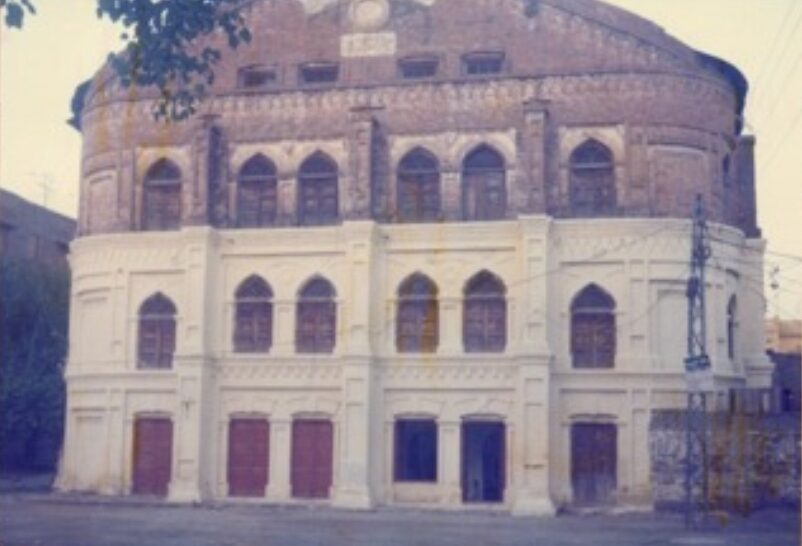
A summary of this lecture was published in various periodicals, such as The Civil and Military Gazette, The Times of India, Roznama Akhuwat of Lucknow, Roznama Hamdam of Lucknow, and Vakil of Amritsar.
The Civil and Military Gazette reported under the title “Hindu-Muslim Relations, Lecture in Lahore”:
“Before a large gathering of Hindus and Mussalmans at the Bradlaugh Hall, Lahore, Sahibzada Mirza Bashir-ud-Din Mahmood Ahmad of Qadian, head of the Ahmadiya community, delivered a lecture on ‘Islam and International Relations.’ Chowdhri Zafarullah Khan, Bar-at-Law, who presided, introduced the lecturer to the audience and asked them to hear him patiently.
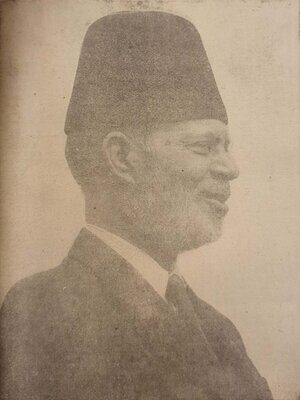
“The lecturer dealt with the question of the unity of the Mussalmans with other communities of India, especially with the Hindus. He pointed out that religious differences could be removed if the people loved each other and acted according to the cardinal principles of the Quran. Islam, he said, was never propagated by the sword but through the message of love and sympathy. Islam never taught the cherishing of bitter feelings against other communities or hatred of fellow-countrymen. Forgiveness and love in return for hatred was the ruling principle of the life of their Prophet Muhammad[sa] as also of the Quran. […] If the people of India acted on the principle as laid down in the Quran, he could say with emphasis that there would no longer be any hatred between different communities, and the riots which had become so frequent would never take place. The religious school to which he belonged and which was founded by Ghulam Ahmed[as] of Qadian preached that love and sympathy should be the ruling principle of life. To him and others of his sect, Rama[as] and Krishna[as], Buddha[as] and Christ[as], or other religious Prophets, were great and holy men. They never abused other great religious teachers of the world. One great cause of bitter feelings and religious hatred was, he said, the abusing by the people of each other’s religious teachers. So long as these feelings existed unity was not possible. They should abandon the habit of abusing great teachers or the world. Mussalmans should respect the religious teachers of the Hindus and the Christians and the Parsis and the latter should also respect the Holy Prophetsa of Islam. It was a sad spectacle to see India disunited and degraded while all other nations of the world were marching towards progress. Right-minded men always wished that there should be unity between different communities in India but real unity had not come as yet. People only talked about unity, but very little had been achieved. Differences were becoming wider and more marked and quarrels were becoming frequent. Mere delivery of lectures and newspaper articles could not achieve much. The time for real action had come and they should devise some practical means to work in all seriousness and earnestly to bring about unity between Hindus and Mussalmans. Their houses should be put in order first and then they should march forward hand in hand towards their destined goal. He knew that the task was difficult but that should not be a cause for disappointment. They should make every possible effort as complete as possible in order to achieve their end. It was no use doing things with the enthusiasm of the moment or abusing the Government of the country. It was they and they only, on whom rested the responsibility and they would have to perform the task in order to better their own condition. The progress of the country was only possible when people stood united and lived in fellowship and sympathy with each other. Unity was not at all difficult if they only meant to achieve it. It was impossible for the Mussalmans, with any respect for their Prophet to say that they could not be united with their Hindu brethren, as that would be going against the religious injunctions of the Quran. If the Musalmans had any faith in the Prophet and their Holy Quran they could not shirk their duty towards brethren in India. The instructions in the Quran were clear and emphatic and the Musalmans should not dare to hate or cherish bitter feelings against the Hindus or other communities.
“In conclusion, the lecturer made constructive suggestions for carrying these principles into action. He suggested that conferences should be held at which religious leaders of different communities should assemble together and explain to each other the merits of their respective religions and of their religious Prophets. A council should be formed in which equal numbers of representatives of the respective communities should discuss their differences and other kindred matters. They should also cooperate with Government officials and the people. In any case of riots or serious differences representatives of all religious communities should assemble and investigate the matter and when they had found out the guilty persons they should be condemned by all. It was by such means that unity between different communities was possible in India, and he hoped that the people of the country would take up the matter seriously and begin to do something in real earnest in this important matter.” (The Civil and Military Gazette, 2 March 1919, p. 10)

The Times of India reported under the heading “Islam and Internationalism”:
“Before a crowded gathering of Hindus and Musalmans, at the Bradlaugh Hall, on Sunday, Sahibzada Mirza Bashiruddin Mahmud Ahmed of Qadian, head of the Ahmadiyya community delivered a lecture on ‘Islam and Internationalism.’ The lecturer dealt principally with the question of unity between Hindus and Mahomedans and other communities of India. Islam, he said, was never propagated by the sword but through a message of love and sympathy and quoted at length extracts from the Quran and the Hadis [sic] in support of his argument that forgiveness and love were the cordial principles of the Quran and the life mission of the Prophet Muhammed[sa]. If the Muslims acted on that principle he could say with emphasis there would be no hatred and bitter feelings between the different communities and riots should never take place. The Hindus and other communities should also respect the Prophets of Islam in return and should never abuse Muslim religious leaders. The members of the Ahmadiyya community, he said, respected all religious teachers of the world. They had the highest veneration for Rama[as], Krishna[as], Buddha[as], and Christ[as]. He appealed to the different communities in India to respect each other’s religious leaders and sink differences and cultivate sympathy and love. If the Musalmans had any faith in their Prophet and Quran they could not shirk from their duty towards their fellow-brethren in India. The injunctions in the Quran were clear and emphatic and the Musalmans should never hate or cherish bitter feelings against the Hindu or other communities. The lecturer suggested that a conference should be held where the religious leaders of the different communities should assemble together and explain [to] each other the merits of their respective religions and their prophets, [and] should absolutely avoid the habit of abusing the religious teachers of the world. This was the way by means of which differences could be removed. A council should be formed with an equal number of representatives of the respective religions. The committee should sit and discuss matters relating to the important matters. They should also cooperate with the Government officials and the people. In the case of a riot or serious differences, the representatives of all communities of India should assemble and investigate the matter and the guilty persons should be condemned by all.” (The Times of India, 28 February 1919, p. 7)
